1) Xi makes nice with Chinese business — a sign of desperation
NYT: Is Xi’s Sudden Embrace of Business for Real? China Is Left Guessing.
After years now of being a hard-ass regarding private businesses, Xi suddenly rolls out the red carpet. Not everyone is buying it because no one is quite sure what it means.
Interpretations of the meeting varied widely.
“Is China,” one social media commenter asked, “now like Shanghai in 1949,” after which the private sector was nationalized under Communist Party rule? “Or is it Shenzhen in 1979,” when China started the policies of reforming and opening up its economy?
“No one knows,” was the response from another commenter, who added that many of the senior leaders in attendance probably didn’t know, either.
Xi has stuck with export-driven growth amidst his general reluctance to prime the pump of consumer spending, which he can’t really command anyway because, once he de facto announced himself to be president for life in 2018, sphincter muscles all over China tightened in that sort of I know how this goes sort of way.
It’s been a staring contest since.
This meeting may look like Xi blinked, but I’m not buying it.
Then again … supposedly the great success of DeepSeek taught Xi a lesson: Maybe I should just let businesses develop technologies on their own and stop trying to pick winners?
The irony, as the story points out: AI is not a fix for weak consumer demand. Indeed, most experts consider it the opposite — a job killer that chills demand.
“The meeting felt like a teacher lecturing students,” a venture capitalist who invested in some of China’s most successful tech start-ups told me. “The market reaction surprised me — it was overly optimistic.”
The private sector contributes over 50 percent of China’s fiscal revenue, more than 60 percent of its economic output, more than 80 percent of urban employment and over 90 percent of the total number of enterprises, according to the state broadcaster.
A businessperson who employs thousands of people in China told me that it was in the party’s interest to treat entrepreneurs better. “If the private sector collapses, China’s economy will be gone,” he said.
So long as Xi remains devoted to state control versus business freedom, he remains the nation’s biggest obstacle to further economic success.
Like any president who stays beyond his allotted time, Xi has got to go for the good of the country — and the global economy..
2) A glimpse of a slimmed-down American economy?
WAPO: Weight-loss drugs aren’t just slimming waists. They’re shifting the economy.
Fascinating story: for now, the weight-loss drugs are mostly a plaything of the rich, but, already we’re seeing how it can shift economic activity when it comes to discretionary spending.
The drugs are life-changing, and so economic behavior-changing.
The anecdote that speaks loudly:
Chicago trial attorney John Drews, like many well-employed Americans, has always given himself a generous discretionary spending budget. As a divorced empty-nester, his purchase priorities, in no particular order, included Scotch, chocolates, pretzels, eating out and beach resorts.
Then, in May 2022, following reports by celebrities and influencers about blockbuster weight-loss drugs, he decided to go on one himself, and everything changed.
He lost 25 pounds the first year, then 75 pounds more the following year. Afterward, Drews says, he didn’t just feel like a different person. He basically was one — with food, clothing, workout and vacation habits that have almost completely overridden everything he used to spend his money on, to the tune of more than $100,000 annually.
“It’s a whole new life,” Drews said.
Imagine that on a societal level: not just the reshaping but the turbocharging of activity and spending and leisure and self-care activities. In a world where AI is looming as job-crusher and career-reassigned, we may be getting a glimpse here of the profound changes in store for our society — to possibly include a new communalism based on all this socializing activities.
Take a load off Fanny. Take a load for free. Take a load off Fanny … and you put the load right on me.
3) Speed the plow
WAPO: After 10,000 years, let’s bury the plow
Totally inappropriate picture that I nonetheless celebrate because my wife and I attended a pre-premier preview show on Broadway of this famous Mamet play. More than that, I sat next to Frank Rich of the New York Times, who insisted on taking notes throughout.
Just a fun and memorable night and the only time I ever caught Madonna live.
Real story is moving past till farming so as to reduce soil and nutrient loss:
The demise of the plow and other tools that turn the soil is a rare good-news story in these depressing times for Planet Earth. Modern, mechanized tillage had become an ecological disaster, killing all that was alive in the soil while worsening erosion and runoff. But this is all changing, primarily because farmers recognize the economic benefits — less fertilizer and diesel fuel to buy, lower labor costs, higher crop yields and profits — that can come with no-till farming or reduced tillage. As a felicitous byproduct, the replacement of traditional tilling, particularly when combined with other “regenerative” agricultural practices, is restoring soil health to tens of millions of acres. Even accounting for the increased herbicide use that often comes with no-till farming, this is a boon to flora and fauna throughout the ecosystem.
Even the chart here is cool:
Good news all around:
If Big Ag destroyed the soil with its heavy use of chemicals and monster tilling equipment, the new agriculture is about building soil health so that it can nurture as it once did.
To me, this is the essence of success and progress in our age of an ascendant majority global middle class: achieving more while damaging less.
It must be so.
4) The China syndrome: wildlife meltdown
WAPO: In Suriname, a shadowy hunt for traffickers selling jaguar parts to China
Here’s how I put it in America’s New Map:
Recall the old business bit, “If only I could sell one [product] to everyone in China!” Well, the radical expansion of Chinese mass consumption has clearly opened Pandora’s box. On the dark side: Chinese consumers desiring body parts from endangered species (e.g., elephant tusks, tiger penises); Chinese farmers being encouraged by the state to domesticate wild animals for meat production, expanding transmission of their viruses into the human population (zoonosis); and Chinese females being trafficked as unwilling brides in response to the nation’s gender imbalance. More benign: China’s love of pecans and walnuts blowing up US nut exports.
Chinese demand shapes our world today more than any other nation’s — save America.
From the NYT story:
Last year, DHS established a Homeland Security Investigations unit (HSI) to target wildlife trafficking and environmental crimes. The effort initially faced skepticism, said Keith McKinney, head of the unit, given the pressing need to boost border security and counter the Latin American and Chinese syndicates driving the drug trade.
“If we have 50,000 people dying a year from fentanyl overdoses, how can we divert resources to address something like wildlife trafficking?” McKinney said. “But the truth is, the same groups that are involved in moving wildlife are moving contraband, moving people, moving weapons and moving money.”
How much you wanna bet that unit is now gone under Musk?
Why we should hope against hope that a broader framing of the issue prevails:
The pipeline of animal parts feeds the demand for obscure ingredients in traditional Chinese medicine formulas and food recipes. China’s expanding presence in the Western Hemisphere — driven by Beijing’s underwriting of infrastructure projects as well as private businesses — has brought an influx of criminals and profiteers into the forests and fisheries of Central and South America, according to researchers, environmental groups and U.S. officials.
The region’s drug cartels work with Chinese syndicates to build supply chains for the precursor chemicals used to make fentanyl, meth and other synthetic drugs, analysts and U.S. officials say. Their expanding ties have also been a driving force behind the record number of Chinese migrants — more than 60,000 — who have illegally entered the United States along the Mexico border since 2023.
It’s all inter-connected, just like nature, and climate change, and other words that cannot be said anymore by our government.
5) Ctrl+Alt+Censor
NYT, The Morning: Chinese influence
A prime but sly example of how China can capture people within an info sphere of its creating:
Marvel Rivals is one of the biggest video games in the world …
But when players used the game’s text chat to talk with teammates and opponents, they noticed something: Certain phrases, including “free Hong Kong” and “Tiananmen Square,” were not allowed.
While Marvel Rivals is based on an iconic American franchise, it was developed by a Chinese company, NetEase Games. It has become the latest example of Chinese censorship creeping into media that Americans consume.
You can’t type “free Tibet,” “free Xinjiang,” “Uyghur camps,” “Taiwan is a country” or “1989” (the year of the Tiananmen Square massacre) in the chat. You can type “America is a dictatorship” but not “China is a dictatorship.” Even memes aren’t spared. “Winnie the Pooh” is banned, because people have compared China’s leader, Xi Jinping, to the cartoon bear.
The restrictions are largely confined to China-related topics. You can type “free Palestine,” “free Kashmir” and “free Crimea.”
Why does all of this matter? Video games are not just sources of entertainment; they are also social platforms. Every day, hundreds of millions of children and adults log on to games like Fortnite, World of Warcraft and, yes, Marvel Rivals to play together and hang out. For many young people, these games are as social as Facebook or X.
China’s video game industry is growing. As it does, the country’s authoritarian leaders are setting the terms of how these social platforms work.
The Winnie the Pooh bit is hilarious and disturbing — hilurbing, let’s call it.
I refer you to the slide:
6) The military war Trump wants to fight
NYT: C.I.A. Expands Secret Drone Flights Over Mexico
WAPO: Under Trump, CIA plots bigger role in drug cartel fight
Trump loves his mafia-vibe, and nothing says it today better than drug lords.
Per my analysis: Trump wants out of Eastern Hemispheric security traps like Ukraine, Iran, Taiwan so he can concentrate the might of the US military on our borders and … taking the fight to the drug cartels.
This is going to be a wild ride.
7) Why that war will be a relatively easy sell … to Americans
BORDER REPORT.COM: 20 Mexican cities, 5 in US among 50 most dangerous in the world
It is sickening how America, with its drug habits, has so ruined Mexican society, politics, and economy. Honestly, it’s amazing Mexico keeps it all together as well as it does given our pernicious influences.
Still, the list is kind of fascinating in its own right:
Port-au-Prince, Haiti
Colima, Mexico
Acapulco, Mexico
Manzanillo, Mexico
Tijuana, Mexico
Ciudad Obregón, Mexico
Machala, Ecuador
Celaya, Mexico
Zamora, Mexico
Port of Spain, Trinidad and Tobago
Cuernavaca, Mexico
Guayaquil, Ecuador
Ciudad Juárez, Mexico
Mandela Bay, South Africa
Manabí, Ecuador
Cape Town, South Africa
Culiacán, Mexico
Buffalo, South Africa
Uruapan, Mexico
Durban, South Africa
Irapuato, Mexico
Feira de Santana, Brazil
Johannesburg, South Africa
Kingston, Jamaica
Memphis, Tennessee
Santa Maria, Colombia
Chihuahua, Mexico
Chilpancingo, Mexico
Cali, Colombia
Zacatecas, Mexico
Recife, Brazil
León, Mexico
Palmira, Colombia
Fortaleza, Brazil
Salvador Bahia, Brazil
Barranquilla, Colombia
Tapachula, Mexico
Benito Juárez, Mexico
Cúcuta, Colombia
Baltimore, United States
Maceió, Brazil
Mexico City, Mexico
Cartagena, Colombia
Porto Velho, Brazil
New Orleans, United States
Detroit, United States
Manaus, Brazil
Cleveland, United States
Morelia, Mexico
Caruaru, Brazil
Who’d have thunk Memphis would rank so high?
8) Wiser words were never spoken
FT: The US must play to its strengths to compete with China in Latin America
Great bit of analysis:
Although the first priority of the Trump administration when it comes to Latin America is stemming the flow of illegal immigrants and narcotics into the US, it is essential that a simultaneous initiative be undertaken to slow the expansion of Chinese economic influence and investment in the region. Under the cover of the Belt and Road Initiative, a multibillion-dollar global infrastructure development programme, China has made huge gains in access to critical minerals, power development and transportation infrastructure, while the US has been largely absent.
The recipe for success?
As a result, the US is losing not just market share and influence, but also the ideological battle between free market, rule-of-law capitalism and state-owned-enterprise autocracy. Pleading with host governments not to strike deals with the Chinese is not an effective strategy. Instead, what the US must do is construct a viable American-led alternative to Chinese investment. It needs a comprehensive, collaborative strategy that competes aggressively for investments, particularly in critical minerals and infrastructure, and formulates creative approaches to financing.
This starts with mobilising US and international public institutions that can support investment in Latin America, in partnership with the private sector.
Where have I seen this before?
Good stuff.
Anybody listening inside Trump 2.0? We can hope Rubio is.
9) Black Sunday with drones
AXIOS: America's drone-swarm crisis
Great book and decent movie: a fragmenting bomb attached to the bottom of the Goodyear blimp that’s crashed into the open-air Super Bowl to kill, kill, kill!
Now imagine the same sort of target but a swarm of drones — maybe 80,000 to take out — individually — just about everyone in Lambeau one afternoon.
The offensive strike threat is coming, and thus defensive capabilities must arise in competition.
This is how/why the Military Singularity quickly becomes the National Security Singularity — the dual-use overlap is endless.
10) Taken with a grain of baby powder
VISUAL CAPITALIST: When Every Continent’s Population Will Peak This Century
All these long-term projections, while fascinating, cannot be taken as unchangeable. Countries will adjust to their demographic fates. Life will be altered by the Technological Singularity in all its forms. Movements will arise and command great attention and devotion.
My point is just that nothing of this scale and profundity happens in a vacuum. Just the predictions trigger responses, so the unfolding will trigger all that much more in campaigns, drives, programs, religious revivals, etc.
Having said that: I buy the 10.3 toppling for humanity.
The big decider here will be migrations, which will be driven by a combination of climate change and the North’s demographic collapse.
It is funny though: when we were far fewer in number (world population at my birth was a mere 3B!), the notion of reaching 10-11B was presented by experts as scary, scary, scary!
Soylent Green scary!
Now … not so much.
In fact, the topping-off dynamic seems kind of spooky.
I honestly think I was born in the perfect year to experience a world transformed across my lifetime.
Lucky me — seriously. I live for this stuff.
11) The Sun King of the 21st Century
BLOOMBERG: China Is Rewiring the Global South With Clean Power
The hard sell right off the bat:
Energy is destiny.
That’s an under-appreciated rule that applies across history, economics, and diplomacy. The countries with access to the best resources — whether the wind- and peat-powered 17th century Dutch Republic, coal-fired 19th century Britain, or the oil-fueled 20th century US — have always been good at dominating more energy-impoverished rivals.
Those with an excess of domestic supply are also able to accumulate the wealth to become significant middle powers in their own right. Think of the influence, out of proportion to their relatively small populations, of fossil-fuel exporters Australia, or Qatar, or Saudi Arabia.
Until recently, that dynamic has been dominated by the world’s great hydrocarbon reserves. But clean energy is changing the picture — and China, which produces three-quarters of the world’s solar panels, is emerging as the clear winner.
Makes you think, doesn’t it?
This is why I say the Western Hemisphere — energy-independent as it is — is truly the OPEC of both water and grains (not a mere coincidence, of course).
Still, those are God-given resources whereas China is working its technologies and manufacturing like crazy to … now that I’m writing it … tap into the ultimate God-given treasure — the sun!
As a soft-power influence-peddling scheme, it’s impressive.
The implications are immense. Countries that have been trapped in energy poverty for generations due to the cost of imported fossil fuels may have a chance to grow faster thanks to cheaper renewables. China could use its technological expertise to burnish its relations with these rising powers, at a time when a delusional and short-sighted Trump administration is abandoning the world stage. Nations that have grown powerful on the back of their fossil-fuel exports have a potent new competitor in town. The winners and losers will define geopolitics and diplomacy in the 21st century.
Very cool bit of analysis.
12) More heatplus weathershifts as Earthwarm reaches climateopt
GUARDIAN: Scientists brace ‘for the worst’ as Trump purges climate mentions from websites
NYT: Farmers Sue Over Deletion of Climate Data From Government Websites
It is beyond idiotic: the Trump Administration’s word-searching for banning/canceling/defunding purposes of something so real and so profound as climate change.
It makes flat earthers seem clever by comparison.
There’s just no profit in this nonsense, and the damage done to our competitive stance vis-a-vis China … is stupendous, as in, it requires really stupid people to pull it off.
It also doesn’t make any sense for a real-estate guy. Climate change is all Relocation! Relocation! Relocation!
We’re talking about mad money to be made here. I just don’t get it.
It will be viewed by history as one of the dumbest manias that America has ever indulged in.
Talk about a mind virus!






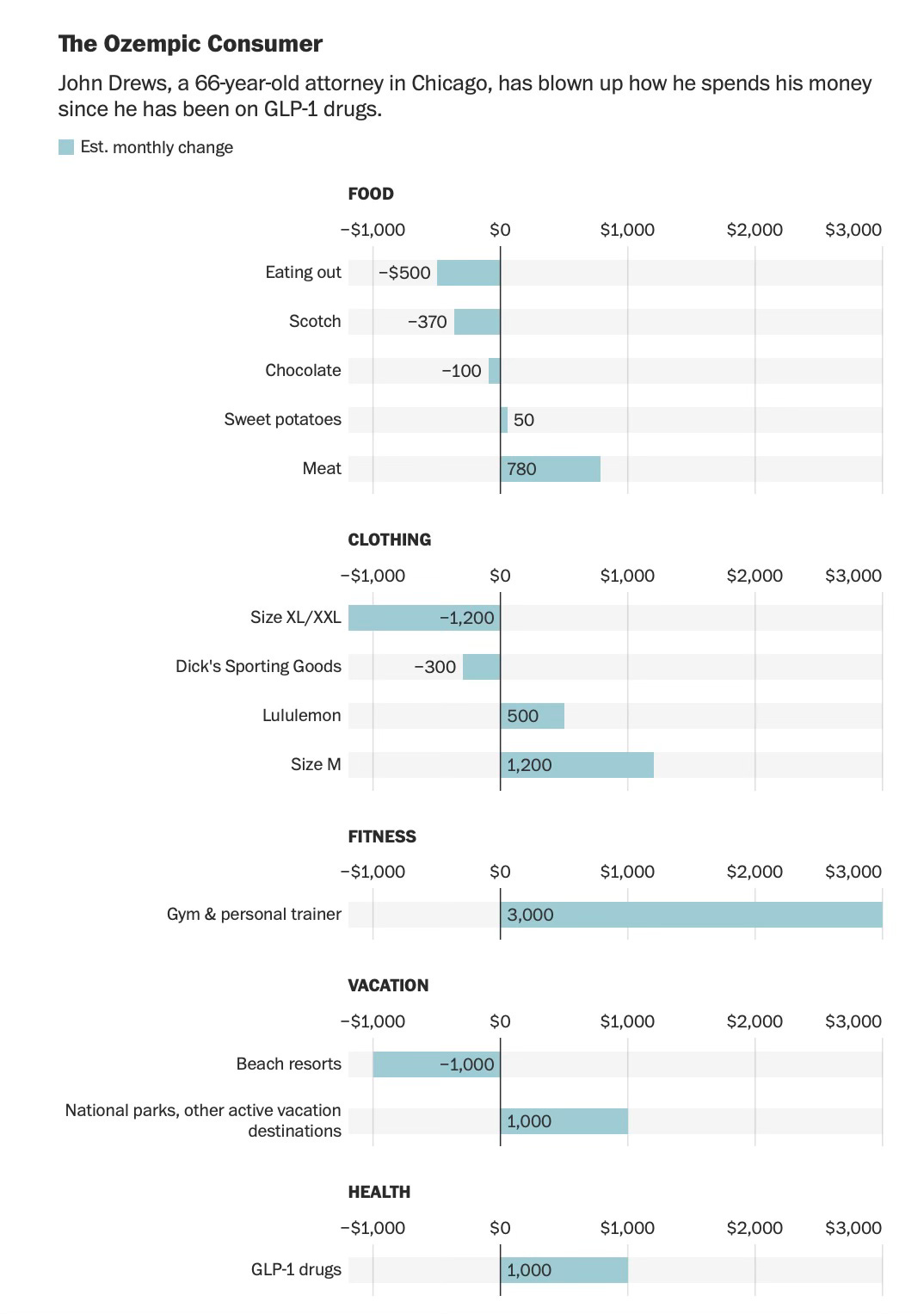



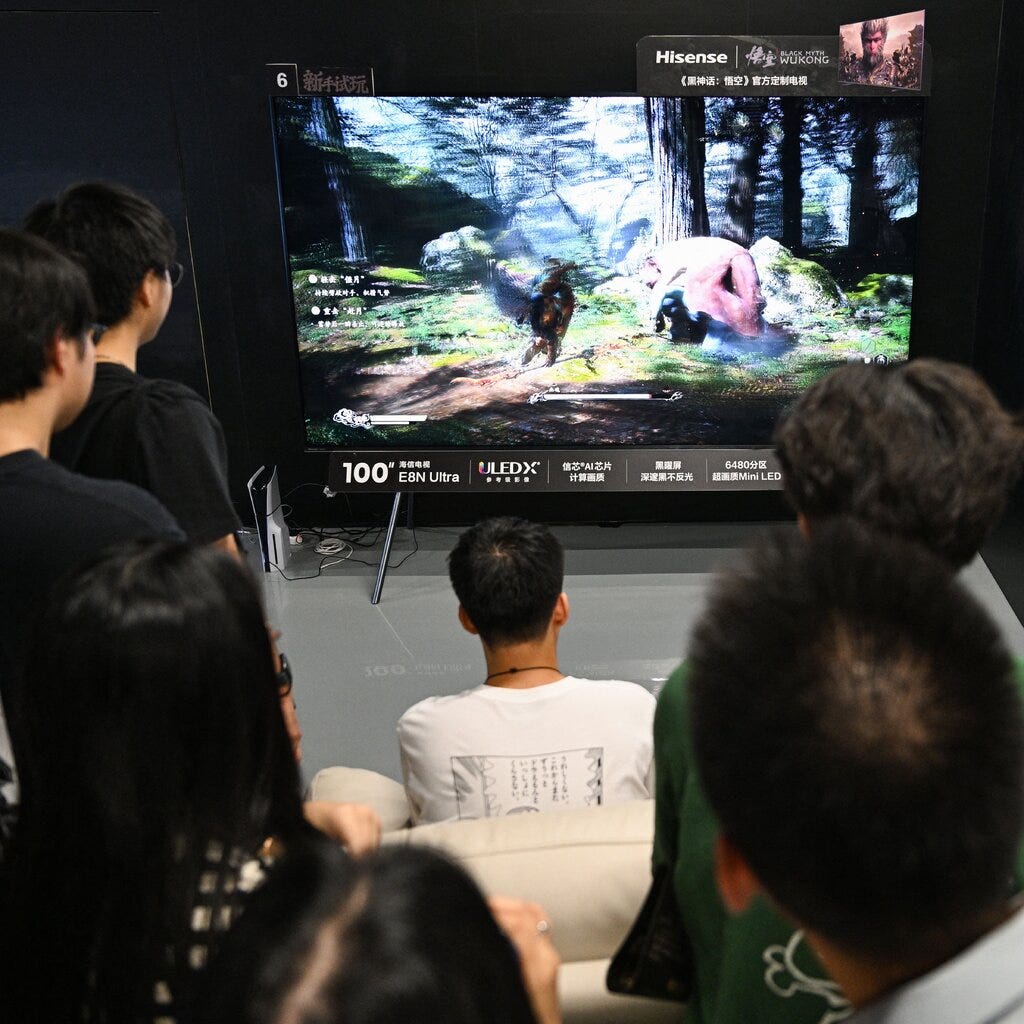
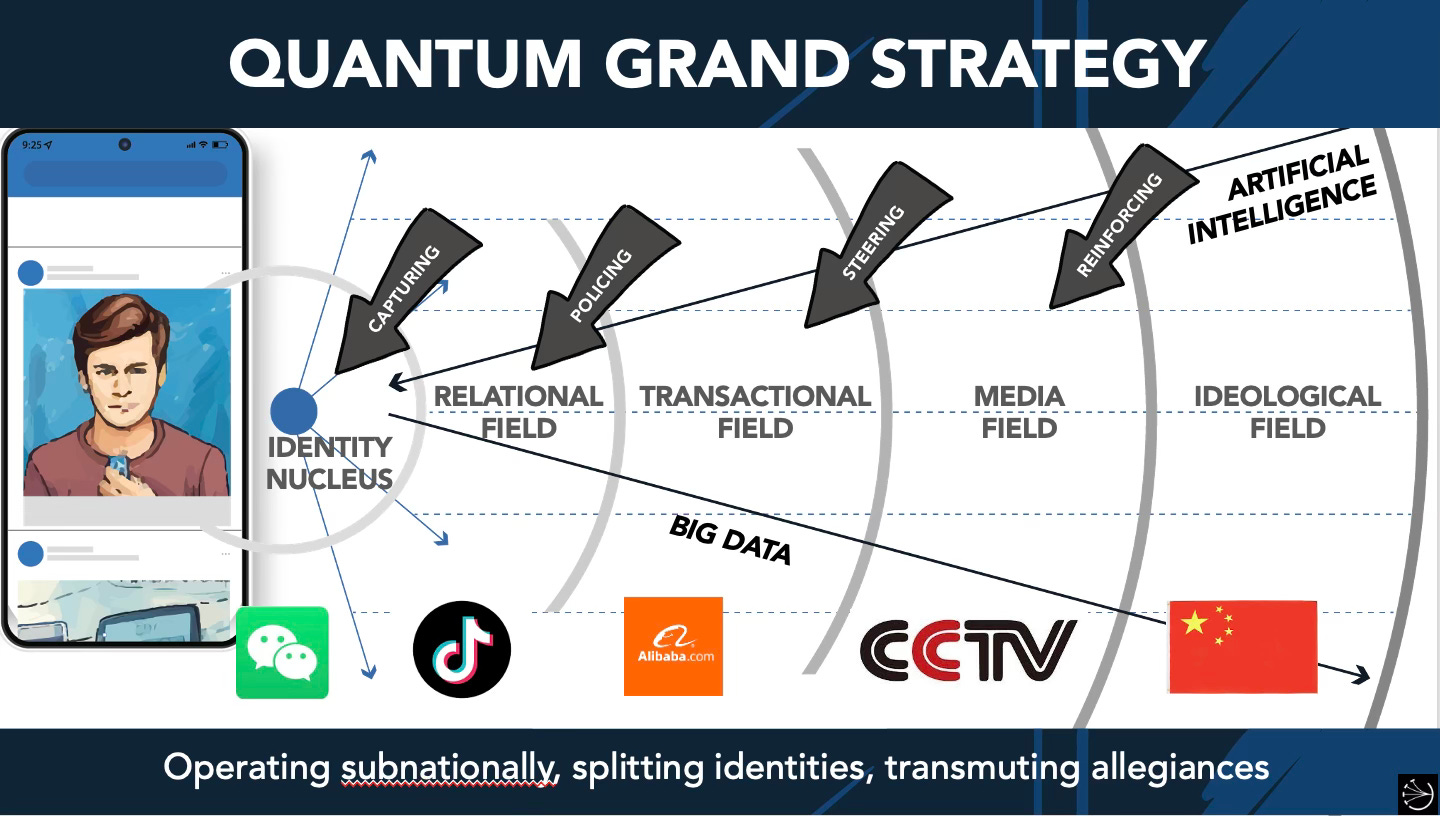




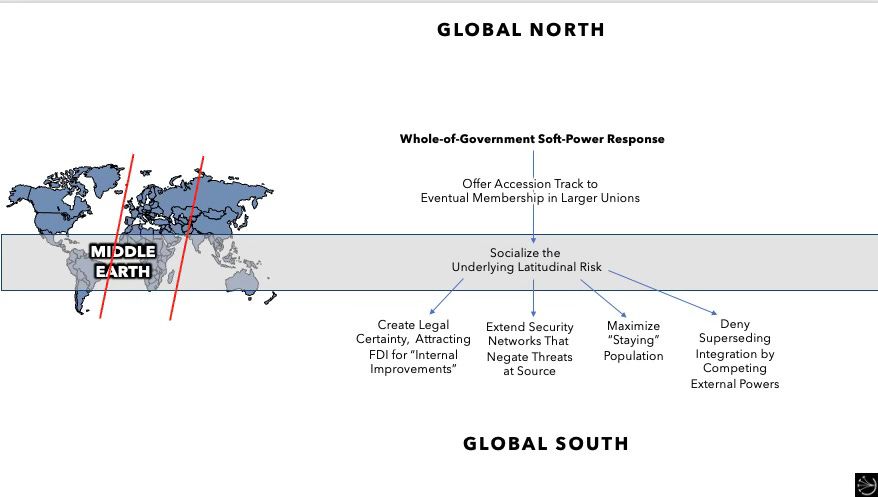




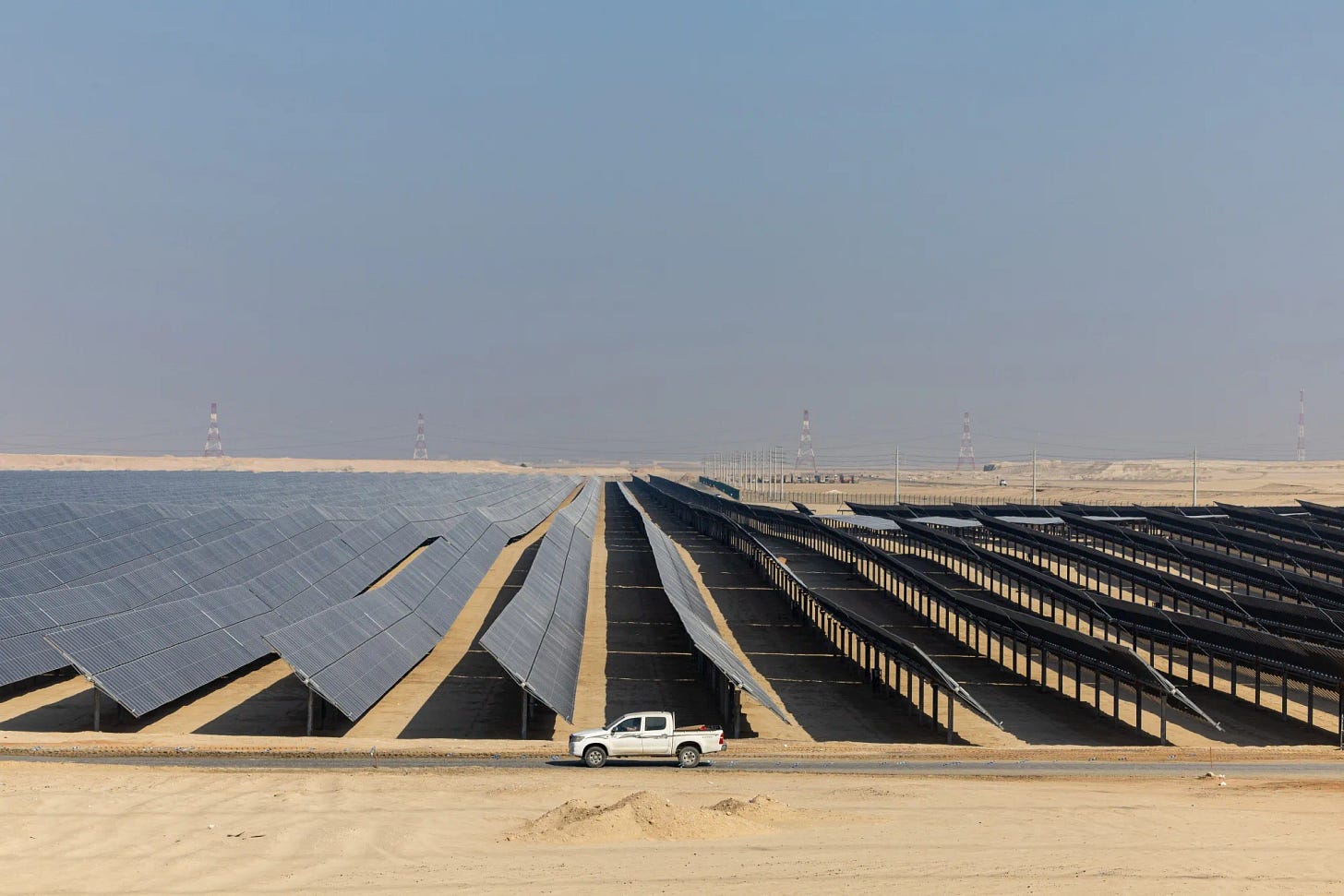





#5 - these banned phrases are commonly used now in many online games, not just ones made by China, as a weapon against suspected Chinese players
with or without factual basis, players have taken to sending these phrases to opponents they suspect of being Chinese, with the impression that either due to built-in censorship on the Chinese players computer, or fear of the Chinese player being "caught" with these phrases on their computer.... they will disconnect from the game spontaneously
Thomas have you read this article yet?
https://apple.news/A1dPl4gx-T3mw1D2JgOlKBA. Any thoughts, it is pretty depressing.